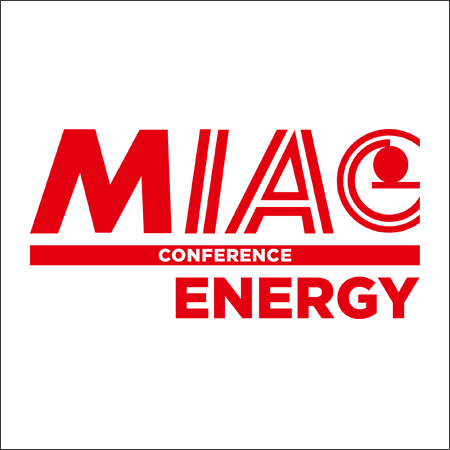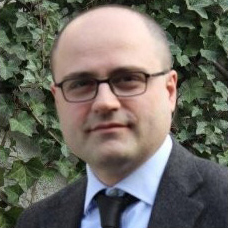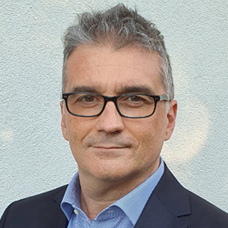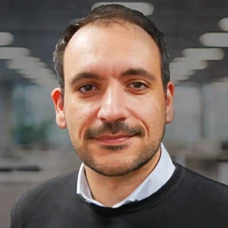
Energy efficiency, low-emission technologies and decarbonization in the paper industry
Wednesday 8 October time 14:00 - 16:50MIAC Conference Room
The MIAC Energy Conference offers an up-to-date overview of the most advanced technological and energy solutions to support the ecological transition of the paper industry. Through the presentations of institutions and leading companies in the sector, concrete tools and projects are analyzed to reduce environmental impact, improve energy efficiency, and implement innovative systems for heat recovery, electric and thermal generation, biogas utilization, and optimized pumping.
The conference makes an important contribution to the decarbonization of the paper sector, highlighting replicable examples of technological integration and outlining the directions for a more sustainable, resilient, and competitive production future.
Registration of participants

Alessandro Bertoglio
Opening remarks

Enrica Cottatellucci
Tools managed by GSE to support decarbonization
In the decarbonization pathway of the paper industry, energy efficiency, self-generation of electricity, and heat recovery are essential strategies to reduce consumption and ensure competitiveness. GSE – Gestore dei Servizi Energetici (Energy Services Manager) – supports companies in the sector through access to incentive mechanisms, which act as key drivers to enable projects related to the energy transition. During the conference, following the presentation of GSE, its services, and the incentive mechanisms available to support the transition process – of clear interest to industry operators – the procedures for obtaining tailored specialist assistance will also be outlined.

Simona D'Angelosante
Biomethane: use in hard-to-abate sectors
With the adoption of Decree-Law of 15 May 2024, No. 63 (Agriculture Decree), which introduced specific provisions to promote the production of biomethane from agricultural biomass and increase its use in production chains that are difficult to decarbonize, interesting prospects are opening up for hard-to-abate companies and biomethane producers. In October 2024, CIB and Assocarta signed a cooperation agreement on these specific issues. During the seminar, it will be possible to examine in depth the contents of the aforementioned regulation and its practical application.

Paolo Masiero
Flexibility and energy integration in tissue and paper production. Solutions for efficiency, resilience, and low carbon intensity
As the paper and tissue industry navigates the energy transition, embracing new technological, operational, and managerial challenges becomes essential to maintain competitiveness and sustainability in both national and international markets. This presentation will explore innovative strategies and technological solutions developed by Solar Turbines to enhance energy and operational efficiency, including the benefits of trigeneration and Digital Twin models capable of transforming CHP systems into active Smart Grid elements. We will discuss how to improve the resilience of CHP systems during grid interruptions and, finally, explore the integration of CCUS technologies for CO₂ reduction and recovery, describing the results of a 6 MW industrial pilot plant. The presentation aims to provide a roadmap for the future of the paper industry, aligning with the main objectives of sustainability and competitiveness.

Mehdi Aminyavari
Heat upgrade technologies integration in paper production facility
This presentation describes an advanced energy efficiency and heat recovery project implemented in a paper production facility. At its core is a heat upgrade system that combines a high-temperature heat pump with a Mechanical Vapor Recompression (MVR) unit, both powered by waste heat from a biomass cogeneration plant. Supported by the PUSH2HEAT project under the EU HORIZON program, the system generates steam at 1.7 barA and compresses a portion of it to 6.5 barA. A 10% reduction in fuel consumption for steam generation is anticipated. The system will be installed near the main steam header to minimize thermal losses and facilitate integration. This approach replaces conventional steam generation with a renewable-based heat recovery solution, reducing both emissions and operational costs. The project provides a replicable model for energy-intensive industries, contributing to EU climate targets through innovative and scalable technologies.

Federico Baroni
Integration of thermal plants in the paper and tissue industry: combined boilers
In the paper industry’s decarbonization journey, energy efficiency and heat recovery are essential strategies to reduce consumption and CO₂ emissions. Combined water tube boilers represent an advanced technology that integrates two sections: a heat recovery section from gas turbine exhaust, to maximize residual heat and reduce fuel demand; and a low-emission burner section, active in case of gas turbine shutdown or peak demand. The compact and modular design allows installation in confined spaces, making it ideal for retrofitting existing paper mills. The use of multi-fuel burners (natural gas, hydrogen, biogas), with Garioni Naval’s integrated control system and low-NOx emission regulation, enables a significant reduction in energy consumption and CO₂ emissions. During the conference, a case study of an application in the paper sector will be presented, with an analysis of energy savings and emission reductions.

Daniele Coppola
Decarbonizing industrial heat with fluidized sand bed-based electro Thermal Energy Storage technology
Magaldi has developed the Magaldi Green Thermal Energy Storage (MGTES), an innovative Power-to-Heat system that uses renewable electricity to charge a fluidized bed of silica sand, enabling zero-carbon steam generation for industrial processes. The MGTES system utilizes silica sand as a storage medium, leveraging its stability at temperatures above 1000°C, long lifespan, and cost-effectiveness. The sand bed’s fluidization enhances thermal diffusivity, heat exchange, and system responsiveness during the system’s charging and discharging phases. The system integrates energy charging, storage, and discharge into a single unit. The technology is modular and ideal for sectors with continuous thermal loads. It is particularly well-suited for pulp and paper mills, where medium-to-high temperature steam is critical. A pilot project in Buccino (Italy) validated the system: a ~7.5 MWh unit with Enel X will supply green steam to I.GI, an edible oil refinery serving Ferrero.

Francesco Ureni
Leading the change. The first full-electric tissue machine in the world
The paper industry faces an urgent need to reduce its environmental footprint, and decarbonization represents a key lever in this transition. Toscotec is committed to enabling a more sustainable future by developing and implementing cutting-edge technologies that significantly lower carbon emissions. By replacing traditional thermal systems with electric solutions, Toscotec has pioneered a new approach to tissue drying and steam generation that eliminates direct CO₂ emissions from these processes. This presentation will showcase Toscotec’s journey towards sustainability, highlighting the case of the first full-electric paper mill in Portugal. It will explore the innovative technologies adopted, the challenges faced, and the measurable environmental benefits achieved. The aim is to inspire and demonstrate how the paper industry can accelerate its transition to a low-carbon, sustainable production model – powered by clean electricity and advanced engineering.

Marco Porro
How to achieve significant energy savings in paper production process with optimized pump systems
Depending on the stage of the paper production process, the energy consumption of the pumps can account for up to 50% of the total energy requirement. Oversized pumps due to unnecessarily high reserves when determining the operating parameters, overload operation due to the expansion of production capacity, wear and tear, and inappropriate system configuration (e.g. piping system, throttle or bypass control, mode of operation, etc.) lead to unnecessarily high energy consumption during pump operation. By carefully examining the pump systems and analyzing the recorded data, the ANDRITZ pump specialists can identify significant energy-saving potential and support the implementation of appropriate measures to optimize the pump systems. Necessary investments usually pay for themselves within a very short time. In this presentation, ANDRITZ presents measures to optimize pump systems and explains the potential energy savings that can be achieved.
